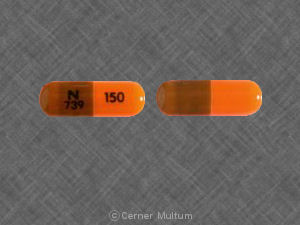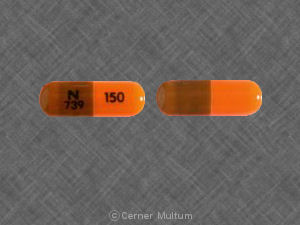What is Mexiletine?
Mexiletine affects the way that your heart beats.
 Mexiletine is used to treat seriously irregular heartbeats.
Mexiletine is used to treat seriously irregular heartbeats.
Mexiletine may also be used for purposes other than those listed in this medication guide.
What is the most important information I should know about Mexiletine?
Do not skip doses, change your dosing schedule, or stop taking mexiletine without talking to your doctor. Changing your schedule could make your condition much worse.
Use caution when driving, operating machinery, or performing other hazardous activities. Mexiletine may cause dizziness, drowsiness, or blurred vision. If you experience dizziness, drowsiness, or blurred vision, avoid these activities.
What should I discuss with my healthcare provider before taking Mexiletine?
Before taking mexiletine, tell your doctor if you have
- any other type of heart disease or heart problem,
- liver disease, or
- seizures or epilepsy
You may not be able to take mexiletine, or you may require a lower dose or special monitoring during treatment if you have any of the conditions listed above.
Mexiletine is in the FDA pregnancy category C. This means that it is not known whether mexiletine will harm an unborn baby. Do not take this medication without first talking to your doctor if you are pregnant.
Mexiletine passes into breast milk. It is not known whether mexiletine will affect a nursing infant. Do not take this medication without first talking to your doctor if you are breast-feeding a baby.
Mexiletine Side Effects
What are the possible side effects of Mexiletine?
If you experience any of the following serious side effects, stop taking mexiletine and seek emergency medical attention:
- an allergic reaction (difficulty breathing; closing of your throat; swelling of your lips, tongue, or face; or hives)
- a new or a worsening irregular heartbeat pattern
- wheezing, coughing, chest pain, or chest discomfort
- unusual bruising or bleeding; or
- fever, sore throat, a sore mouth, mouth ulcers, or an infection
Other, less serious side effects may be more likely to occur. Continue to take mexiletine and talk to your doctor if you experience
- dizziness, lightheadedness, or tiredness
- poor coordination
- dry mouth
- upset stomach, heartburn, vomiting, or decreased appetite
- diarrhea or constipation
- headache or blurred vision
- weakness
- numbness, tingling, or tremor (shaking)
- ringing in your ears
- a rash; or
- depression
This is not a complete list of side effects and others may occur. Call your doctor for medical advice about side effects. You may report side effects to FDA at 1-800-FDA-1088. You may report side effects to FDA at 1-800-FDA-1088.
Mexiletine Interactions
What other drugs affect Mexiletine?
Before taking mexiletine, tell your doctor if you are taking any of the following medicines:
- phenytoin (Dilantin), mephenytoin (Mesantoin), or ethotoin (Peganone)
- rifampin (Rimactane, Rifadin)
- metoclopramide (Reglan)
- cimetidine (Tagamet, Tagamet HB); or
- theophylline (Theo-Dur, Theolair, Elixophyllin, Slo-Phyllin, others)
You may require a dosage adjustment or special monitoring if you are taking any of the medicines listed above.
Drugs other than those listed here may also interact with mexiletine. Talk to your doctor and pharmacist before taking any prescription or over-the-counter medicines.
What should I avoid while taking Mexiletine?
Use caution when driving, operating machinery, or performing other hazardous activities. Mexiletine may cause dizziness, drowsiness, or blurred vision. If you experience dizziness, drowsiness, or blurred vision, avoid these activities.
Follow any other special instructions your doctor gives you regarding food, beverages, or activities.
Mexiletine Dosage
How should I take Mexiletine?
Take mexiletine exactly as directed by your doctor. If you do not understand these directions, ask your pharmacist, nurse, or doctor to explain them to you.
Take each dose with a full glass of water.
Also, take mexiletine with food or an antacid to lessen stomach upset.
Do not skip doses, change your dosing schedule, or stop taking mexiletine without talking to your doctor. Changing your schedule could make your condition much worse.
Store mexiletine at room temperature away from moisture and heat.
What happens if I overdose on Mexiletine?
Seek emergency medical attention.
Symptoms of a mexiletine overdose include nausea, seizures, numbness or tingling, tiredness, dizziness, a loss of consciousness, and a worsening irregular heartbeat.
What happens if I miss a dose of Mexiletine?
Try not to miss any doses of this medication. Missing doses could be very dangerous.
If you do miss a dose, take it as soon as you remember. However, if it is almost time for your next dose, skip the missed dose and take only your next regularly scheduled dose. Do not take a double dose of this medication. A double dose could be dangerous.
Edited from everydayhealth.com
